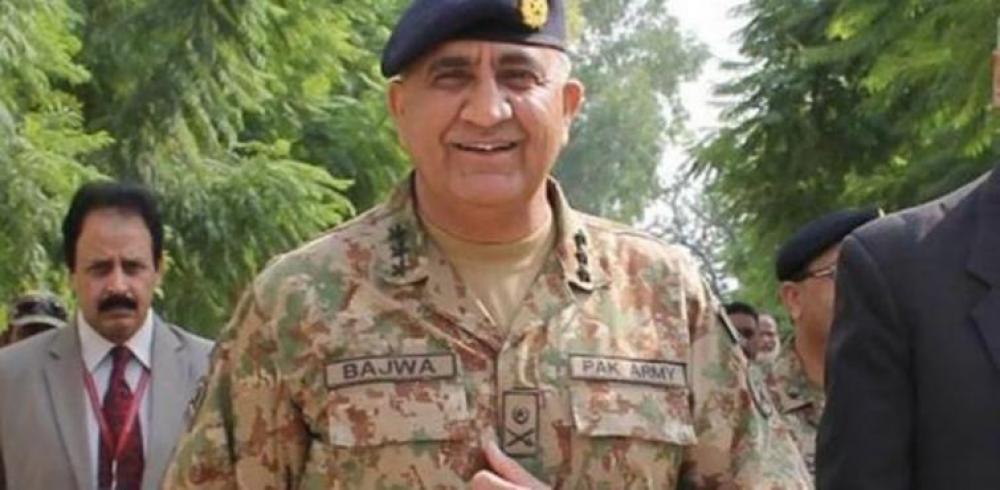South Asia Monitoring/IBNS | @indiablooms | 19 Mar 2021, 04:25 am Print
 India-Pakistan
India-Pakistan Image: UNI
Pakistan Army Chief General Qamar Javad Bajwa said that the time has come for the two nations (India & Pakistan) to “bury the past and move forward”; the economic potential of the region, he claimed, has remained hostage to the India-Pakistan rivalry.
The remark came while he was addressing the Islamabad Security Dialogue on Thursday in Pakistan.
“Stable Indo-Pak relation is a key to unlock the untapped potential of South and Central Asia by ensuring connectivity between East and West Asia,” Bajwa said, adding the potential remained “hostage’ to the rivalry between the two nations. He also added the Kashmir dispute as “the head of all these problems.”
“We feel that it is time to bury the past and move forward. But for the resumption of the peace process or meaningful dialogue, our neighbor (India) will have to create a conducive environment, particularly in Indian Occupied Kashmir.”
Just a day earlier, on Wednesday, Pakistan Prime Minister Imran Khan, too, had put the onus of creating a conducive environment, and a first step, on India. However, neither the army chief nor the prime minister elaborated what “the first step” or “conducive atmosphere” means, though Khan had said India should roll back the August 5, 2019 decision to strip Jammu & Kashmir - which Pakistan calls a "disputed territory" - of its special status.
Outlining the geo-economic vision of Pakistan, Bajwa further said, “non-interference of any kind in the internal affairs of our neighboring and regional countries” is one of the founding principles of this approach. He also stressed increasing regional trade.
Claiming that the country has “overpowered the menace of terrorism and extremism”, Pakistan is now focussing on sustainable development and improving the “economic condition of the underdeveloped region.”
- Ali Khamenei (1939–2026): Iran’s Supreme Leader who ruled with an iron grip
- Trump signs 10% global tariff, says it takes effect ‘almost immediately’
- BJP wins a seat in Bangladesh — But not the one you think!
- Meet Shabana Mahmood: Could she take over as UK’s first Pakistani-origin Muslim PM?
- Dalai Lama's Office breaks silence on Epstein claims





-1763561110.jpg)
